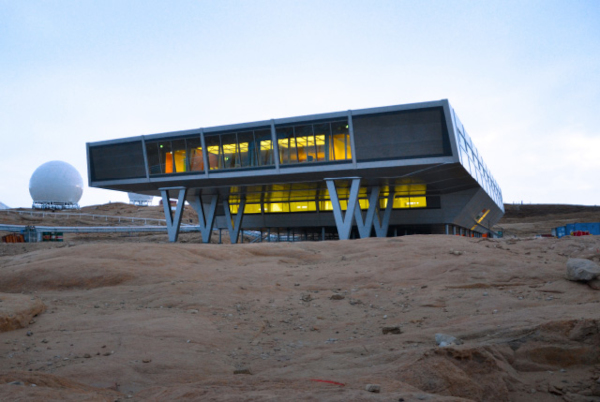The 40th Indian Scientific Expedition to Antarctica (40-ISEA) hosted by the Ministry of Earth Sciences successfully returned to Cape Town on 10 April, after completing a journey of around 12 thousand nautical miles in 94 days, including stopovers.
This achievement concludes four successful decades of India’s scientific endeavour in Antarctica. The 40-ISEA comprised Indian scientists, engineers, doctors, and technicians, who began their journey from the Mormugao Port of Goa to Antarctica on 7 January, 2021.
The team reached its destination station Bharati on 27 February, 2021, and Maitri on 8 March, 2021. Bharati and Maitri are India’s permanent research base stations in Antarctica. The stations are approachable only during the austral summer season between November and March.
After accomplishing several scientific objectives, changeover of winter crew, and Bharati and Maitri’s resupply, the 40-ISEA Indian contingent returned to Cape Town on 10 April, marking four decades of success of the country’s scientific endeavour in Antarctica, the Ministry of Earth Science said in a statement.
On its way to Antarctica, the voyage team deployed four autonomous Ocean Observing DWS (Directional Wave Spectra) wave drifters between 35 degree and 50 degree south latitudes in collaboration with Indian National Centre for Ocean Information Services (INCOIS), Hyderabad.
The drifters would transmit real-time data of spectral characteristics of waves, sea surface temperatures, and sea-level atmospheric pressure to INCOIS, Hyderabad, which will help validate weather predictions in a big way.
The 40-ISEA was onboard the MV Vasiliygolovnin, a chartered ice-class vessel. It made stopovers at Cape Town for picking up helicopters and replenishing fuel and provisions and at the Indian research bases Bharati and Maitri for resupply and changeover of winter crew.
The expedition positioned a team of 20 personnel at Bharati led by Atul Suresh Kulkarni from the Indian Institute of Geomagnetism and 21 personnel at Maitri led by Ravindra Santosh from the Indian Meteorological Department.
The 40-ISEA was conducted under innumerable challenges due to the persisting Covid-19 pandemic. Necessary measures were taken to keep the Antarctic free of coronavirus. The team was subjected to a stringent medical examination by the Goa Medical College before departure and was quarantined for 14 days before boarding the ship.
Source: Swarajya Magazine
You may also like
-
New Heat-Based Approach To Cancer Treatment Can Reduce Chemotherapy Doses
-
Scientists Take A Major Step Towards Unification Of Classical & Quantum Gravity
-
India Graphene Engineering and Innovation Centre (IGEIC) Under the Vision of Viksit Bharat@2047 Launched
-
New High-Performance Gas Sensor can Monitor Low Level Nitrogen Oxides Pollution
-
Antidepressant Drug can be Repurposed for Treating Breast Cancer
